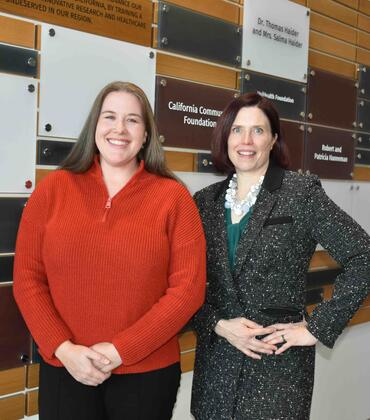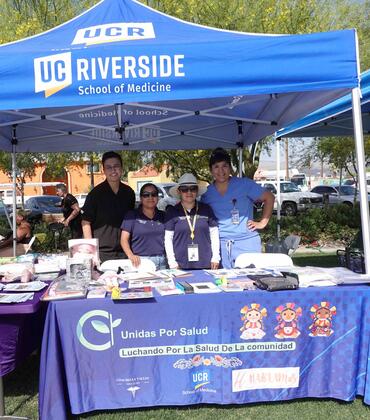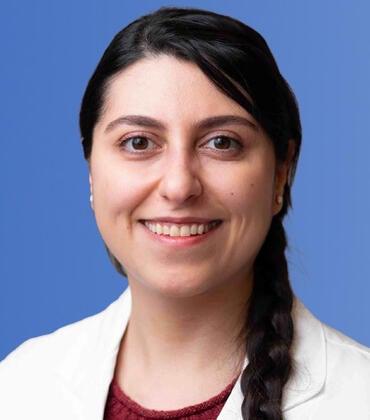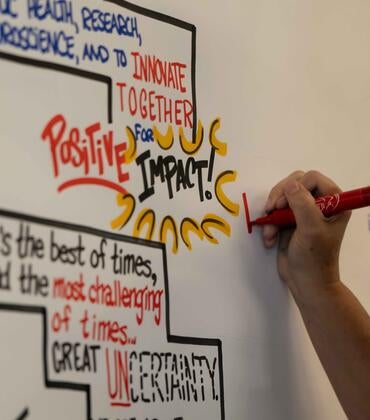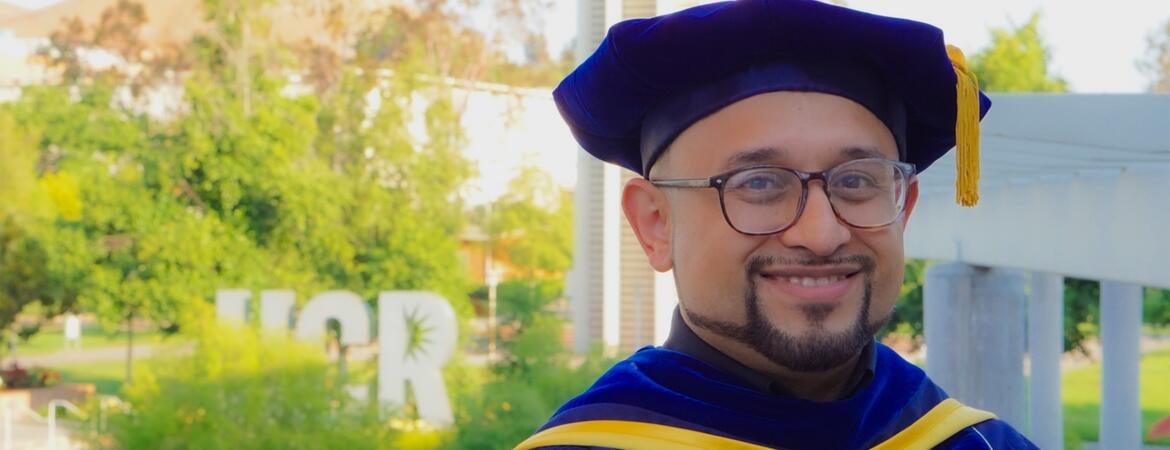
As a high school student, Pedro Villa, PhD, began dreaming of a career in medicine after his grandfather was diagnosed with cancer. Yet just as he was set to receive his bachelor’s degree from UC Riverside in 2012, financial and caregiving challenges blocked his path toward medical school.
Villa spent the next five years helping his mother, who was disabled at the time following an injury at work, while working in the Information Technology Solutions Department at the UCR School of Medicine. Still, Villa never lost sight of his goals and remained focused on figuring out the next steps toward his medical career.
Focused on his degree
Even as he worked a technology job during the day, Villa devoted his evenings to doing research in the lab he’d first joined as an undergraduate. Villa met Ameae M. Walker, PhD, a professor of biomedical sciences when he was a pre-med student, and assisted in her research toward a drug to target triple negative breast cancer, an aggressive form of cancer with few treatment options.
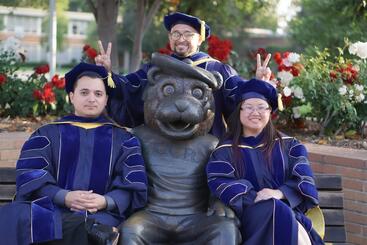
In Walker’s lab, Villa quickly shifted his focus from becoming a doctor to pursuing medical research. “That's when I fell in love and sort of caught the science bug,” he recalled, calling Walker an “inspiring and supportive mentor.” “I wanted to be the person that is developing and discovering these potential therapeutics for human disease.”
When Villa graduated, he continued working in Walker’s lab after finishing each day at his IT job. His work furthered his prior research, investigating the drug’s ability to target cancer stem cells. “[Walker] was very gracious to let me work in the lab, which allowed me to gain science experience,” Villa said.
Walker praised Villa’s approach to learning. “If something in the lab didn’t work, he first went to the literature before asking for help,” she explained. “Pedro showed real talent and excitement and was a joy to work with,” Walker added. “It has been a very great pleasure to watch him develop as a scientist.”
Villa’s days weren’t easy. “I would work during the day at my nine to five job, and then after that, at night, I would go to the research lab and work for however long the experiments took to run,” Villa said. “I was working nonstop it felt like, but I knew I wanted to achieve my dreams.”
“Even though those days were tough, I still kept with it,” he added. “I just knew I wanted to be there, to be in research, so I was headstrong in pursuing that.”
Putting dreams on hold to work in a school you aspire to attend could be challenging for many, but Villa said the situation motivated him. While he set up classroom technology and helped troubleshoot issues, he would listen to lectures and talk to the professors after their classes. “Honestly, it was inspiring to me,” Villa said. “I enjoyed being around that environment and learning and getting to know everyone.”
The hard work pays off
After several years of working in IT, Villa was able to pay off his undergraduate student loans and apply to graduate school. “I got an acceptance from UCR and I took it right away just because I really liked the atmosphere and the faculty and the staff,” he said. “It just felt like home.”
Villa said his boss and coworkers were aware of his goals and supported his journey. When Villa was accepted into the PhD program, “I was ecstatic,” recalled Armando Gauna, chief technology officer in the SOM’s Office of Information Technology and Villa’s boss at the time. “Pedro is an exceptional person, and I was happy that he was given the opportunity to follow his dream.”
Villa added that his coworkers held a celebration for him following his graduate school acceptance. “They were glad that they could still see me, because I would still be around,” he said.
As a PhD student at UCR, Villa continued his research in the endocrinology field, this time in the lab of Djurdjica Coss, PhD, a professor of biomedical sciences. Coss, who also cited Walker as a mentor, recalled meeting Villa during his time working for the SOM and encouraging him to enroll in the graduate program. “[Walker and I] both agree that Pedro has a scientific mind with essential attention to detail, perseverance, and a thirst for knowledge that is necessary for a successful career in research,” Coss said.
With Villa’s interest in hormones sparked by his work in the Walker lab, his graduate research projects looked at the effect of a particular genetic mutation that causes premature ovarian failure in women, as well as the mechanisms that induce low testosterone levels in obese men.
Coss noted Villa’s willingness to take on challenging projects. “Pedro’s perseverance is his greatest asset,” she said. “When experiments wouldn’t work, he would take a few moments and recoup, and then start anew with fresh enthusiasm.”
Villa’s persistence and approach to his work reflect the challenges he faced on his longer path to graduate school. “It built endurance and character and determination in me that I wouldn't change for anything,” he explained. The experience also developed Villa’s time management and scientific precision, which he was able to use as a PhD student. “When I would work in IT and then go to lab after, I knew I had to plan my day to the exact hour and minute so that I could do as much as I could,” Villa said. “So when I would do experiments, I wanted to make sure I did them as well as I could from the beginning, so as to not waste time and to focus on troubleshooting.”
“I went through it for a reason"
This year, Villa graduated with his PhD and recently started his postdoctoral training at Rockefeller University in New York. While he hasn’t yet decided on his research project, he’s considering a range of topics including examining RNA binding proteins or investigating neuronal mechanisms in autism.
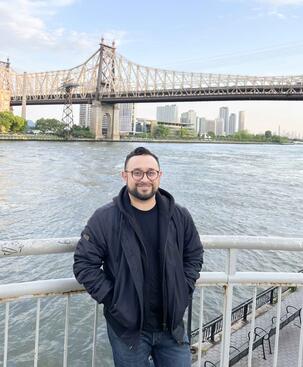
Someday, Villa said he hopes to run his own lab. He recognizes that it will be a challenging goal to reach, but after overcoming the many hurdles on his path to graduate school, he expressed confidence in his ability to make it happen or to find another fulfilling route for his career.
Villa said the challenges and delays he faced before earning his PhD were difficult but worthwhile. “I feel like I went through it for a reason,” he said.
For others facing similar challenges, Villa urged them to network—and to persevere. “Really find out what it is that you want to do, and don't be afraid to reach out to anybody that can help you move a step up,” he said. “If you want to pursue your dream career, just go for it. You'd be surprised how many people are there to help you out and receive you with open arms.”
